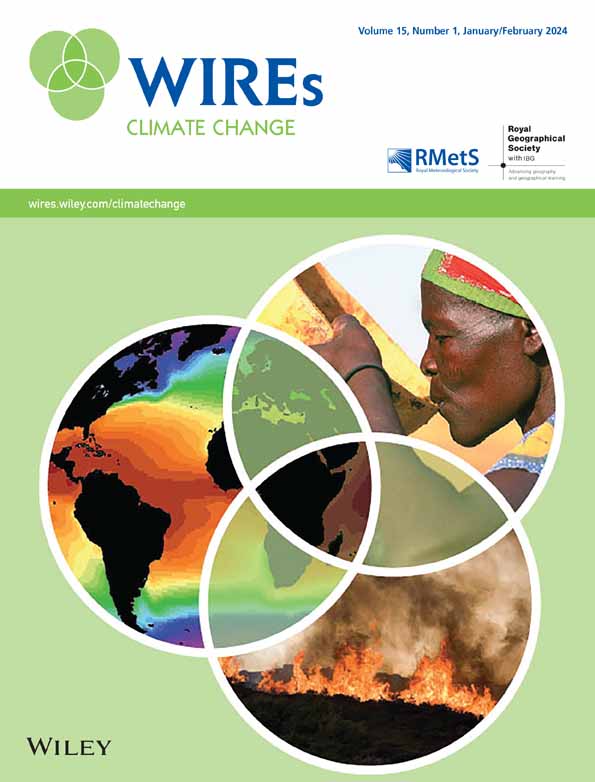Non‐ and sub‐state climate action after Paris: From a facilitative regime to a contested governance landscape
IF 10.3
1区 环境科学与生态学
Q1 ENVIRONMENTAL STUDIES
引用次数: 3
Abstract
The Paris Agreement marks a significant milestone in international climate politics. With its adoption, Parties call for non‐ and sub‐state actors to contribute to the global climate agenda and close the emissions gap left by states. Such a facilitative setting embraces non‐state climate action through joint efforts, synergies, and different modes of collaboration. At the same time, non‐state actors have always played a critical and confrontational role in international climate governance. Based on a systematic literature review, we identify and critically assess the role of non‐state climate action in a facilitative post‐Paris climate governance regime. We thereby highlight three constitutive themes, namely different state‐non‐state relations, competing level of ambition, and a variety of knowledge foundations. We substantiate these themes, derived from an inductive analysis of existing literature, with illustrative examples and propose three paradigmatic non‐state actor roles in post‐Paris climate governance on a continuum between compliance and critique. We thereby highlight four particular threats of a facilitative setting, namely substitution of state action, co‐optation, tokenism, and depoliticization. Future research should not limit itself to an effective integration of NSSAs into a facilitative climate regime, but also engage with the merits of contestation.巴黎会议后的非国家和次国家气候行动:从促进性制度到有争议的治理格局
《巴黎协定》标志着国际气候政治的一个重要里程碑。通过该法案,缔约方呼吁非国家和次国家行为者为全球气候议程做出贡献,并缩小各国留下的排放差距。这种便利环境包括通过共同努力、协同作用和不同合作模式采取的非国家气候行动。与此同时,非国家行为者在国际气候治理中始终发挥着关键和对抗作用。基于系统的文献综述,我们确定并批判性地评估了非国家气候行动在促进后巴黎气候治理制度中的作用。因此,我们强调了三个组成主题,即不同的国家-非国家关系、竞争的雄心水平和各种知识基础。我们通过例证证实了这些主题,这些主题源于对现有文献的归纳分析,并在遵守和批评之间提出了后巴黎气候治理中三个典型的非国家行为者角色。因此,我们强调了便利环境的四个特殊威胁,即国家行动的替代、合作、象征主义和非政治化。未来的研究不应局限于将NSSA有效地纳入有利于气候变化的制度,还应考虑到争论的优点。
本文章由计算机程序翻译,如有差异,请以英文原文为准。
求助全文
约1分钟内获得全文
求助全文
来源期刊

Wiley Interdisciplinary Reviews: Climate Change
METEOROLOGY & ATMOSPHERIC SCIENCES-
CiteScore
20.00
自引率
2.20%
发文量
58
审稿时长
>12 weeks
期刊介绍:
WIREs Climate Change serves as a distinctive platform for delving into current and emerging knowledge across various disciplines contributing to the understanding of climate change. This includes environmental history, humanities, physical and life sciences, social sciences, engineering, and economics. Developed in association with the Royal Meteorological Society and the Royal Geographical Society (with IBG) in the UK, this publication acts as an encyclopedic reference for climate change scholarship and research, offering a forum to explore diverse perspectives on how climate change is comprehended, analyzed, and contested globally.
 求助内容:
求助内容: 应助结果提醒方式:
应助结果提醒方式:


